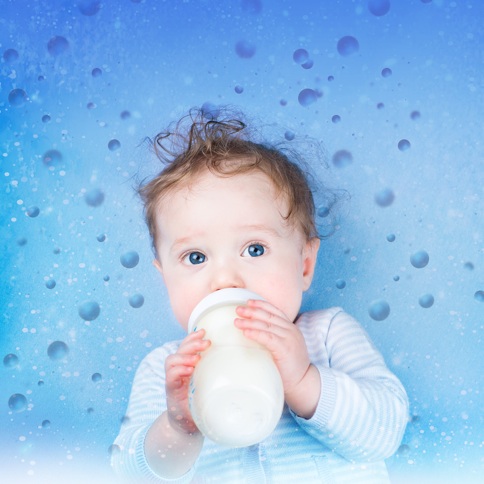In July 2017, independent testing commissioned by Friends of the Earth found nanoparticles in popular Australian infant formula products that are both illegal in Australia and potentially dangerous.
Now, documents released under Freedom of Information laws show that our food regulator Food Standards Australia New Zealand (FSANZ) unilaterally ‘legalised’ the use of nano-hydroxyapatite in baby formula after previously declaring it wasn’t permitted. FSANZ also misled its minister – Dr David Gillespie – and the public by stating that members of its Scientific Nanotechnology Advisory Group (SNAG) supported its claims that the ingredient was safe – when they actually raised safety concerns.
Take action: Demand an urgent recall
Legalising the presence of nano-hydroxyapatite
The documents reveal that FSANZ back-flipped on its position that the use of nano-hydroxyapatite in baby formula was illegal and reinterpreted its legislation to serve industry. It did so by accepting without evidence industry claims that the particles weren’t intentionally added and then deciding that they therefore weren’t subject to the Food Code’s prohibition on the use of nutritive substances in infant formula unless they are expressly permitted.
FSANZ neither sought nor had evidence that the nano-hydroxyapatite wasn’t intentionally added but accepted the claim immediately; ignoring the conclusion of Arizona State University scientists that it was both synthetically produced and likely intentionally added. FSANZ also ignored SNAG’s conclusion that they didn’t know if the nano-hydroxyapatite was intentionally added based on the available information.
FSANZ staffer Trevor Webb asked how do “we intend to manage the change in opinion re approval”. This is a critical admission that FSANZ has completely reversed its position on the legality of n-Ha in baby formula. FSANZ failed to inform its Minister of its new interpretation of the Food Code.
Asserting safety
In advice to the Minister and in a public statement on its website, FSANZ also claimed its Scientific Nanotechnology Advisory Group (SNAG) supported its conclusion that the nanoparticles of hydroxyapatite found in baby formula were safe. A SNAG member contacted FSANZ unhappy with this misrepresentation – pointing out that at the only meeting SNAG had had to that point, the safety of nano-hydroxyapatite hadn’t even been discussed.
SNAG met subsequently and could not reach consensus on the safety of n-Ha, or support FSANZ’s claims that n-Ha fully dissolves in infant stomachs. FSANZ never notified Minister Gillespie of SNAG’s actual views.
Institutional corruption
The documents reveal FSANZ coordinated its response with the baby formula industry. FSANZ goes so far as to write: “Are they engineered? Use industry response they are not adding Ha so irrelevant”.
It is inexcusable that FSANZ is prepared to put babies at risk because it doesn’t want to force the formula industry to abide by the law. When an agency starts moving the legal and scientific goal posts without evidence and solely for the benefit of industry, the problem is serious.
It is clear that there is a systemic problem with FSANZ. It consistently refuses to regulate, ignores legitimate health concerns and won’t act for the public good except in the most extreme cases. The agency needs to be fully investigated and overhauled.
Take action: Demand an urgent recall
Read our briefing on the FOI documents.


